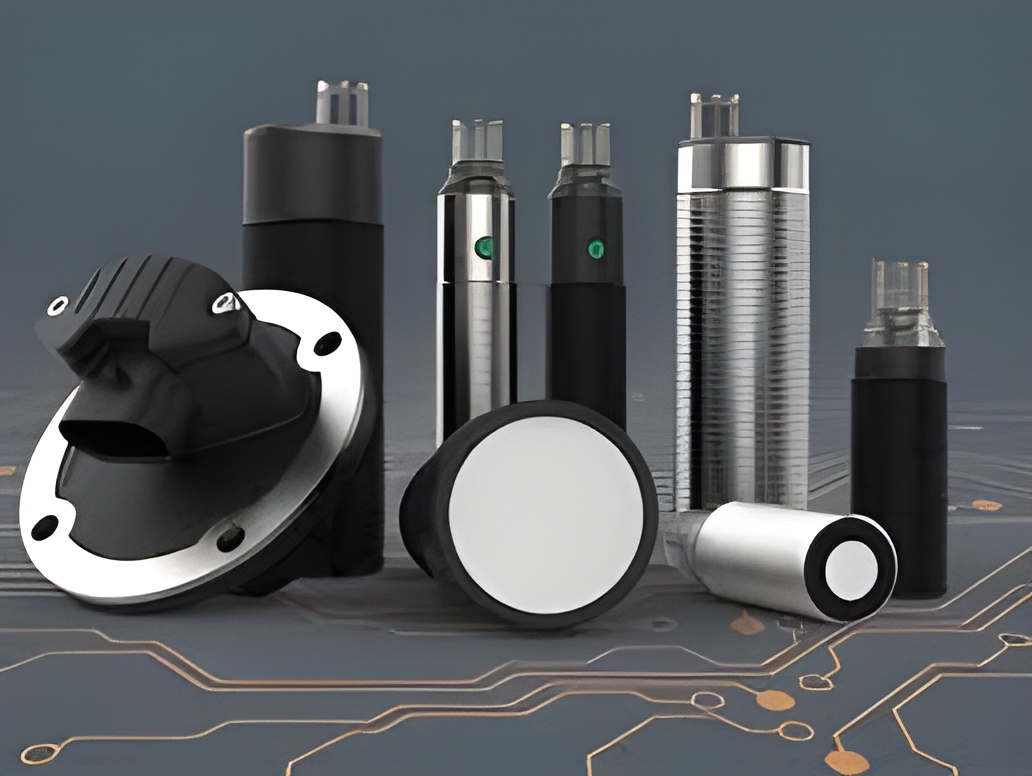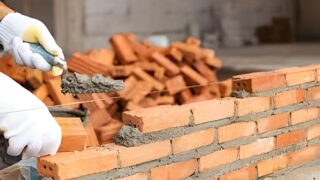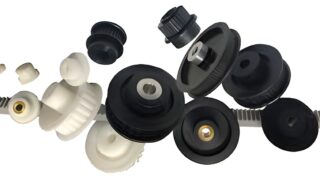
Tooling and Mold Specificities impacting Quality Control Service and Product Inspection in China
The tooling and mold industry specialises in designing, manufacturing, and maintaining tools and molds used in manufacturing processes. It focuses on precision and quality while adapting to technological advancements. The industry offers customisation and prototyping services to meet specific requirements. However, cost considerations, including price constraints, are an important aspect of tooling and mold production to ensure affordability and competitiveness in the market.
Quality control in the tooling and mold industry is essential for ensuring high product standards, minimising errors, and meeting customer requirements. It helps manufacturers maintain consistency, standardisation, and reliability in their products. By conducting inspections and tests, it reduces the risk of faulty tools and molds entering the market, mitigating potential financial and reputational consequences. Additionally, quality control ensures compliance with regulations and helps manufacturers and importers deliver products that meet safety and quality standards. Overall, it plays a vital role in enhancing product quality, reducing costs, and building customer trust and satisfaction.
At Worldwide Quality Control (WQC), we are dedicated to serving the tooling and mold industry with unmatched quality control services, meticulously tailored to perfection. Our unwavering commitment to excellence ensures that every tooling and mold item, regardless of its origin, surpasses even the most stringent quality standards. With our deep industry knowledge and expertise, manufacturers and importers place their trust in us as their reliable partner for top-notch quality control solutions. By conducting meticulous inspections and adhering to international standards, we safeguard your brand reputation, exceed customer expectations, and drive success in the fiercely competitive tooling and mold market. Choose WQC for exceptional quality control that sets you apart.
Usual Norms and Standard related to Tooling and Mold Quality Assurance
- Design for Manufacturability (DFM) Certification
- Automotive Industry Action Group (AIAG) Core Tools Certifications
- NADCA Certification
- ASTM International Standards
- Society of Plastics Engineers (SPE) Certifications
- Cleanroom Certification
- Food Safety System Certification (FSSC) 22000
- Hazard Analysis and Critical Control Points (HACCP)
- UL Certification
- Good Manufacturing Practice (GMP)
- NSF International Certification
- Moldflow Analysis Certification
In China, manufacturers, importers, and suppliers in the tooling and mold industry must prioritize adherence to established norms and standards for quality assurance. At WQC, we recognize the significance of complying with these standards. Our unwavering dedication to upholding these norms enables us to assist manufacturers, importers, and suppliers in ensuring top-notch product quality and meeting regulatory obligations. By relying on our expertise and commitment to compliance, our clients can foster trust among their customers and gain a competitive edge in the industry. We are proud to be their trusted partner on this journey towards excellence.
Items related to Tooling and Mold subject to Quality Control and Quality Inspection in China
In China, stringent quality control and inspection procedures are applied to a wide range of tooling and mold products. These encompass various items, including:
- Automobile Components
- Consumer Electronics
- Packaging Materials
- Medical Devices
- Household Products
- Industrial Machinery Parts
- Aerospace Components
- Construction Materials
- Electrical Components
- Furniture
- Packaging Machinery
- Food and Beverage Containers
- Plumbing and Sanitary Fittings
- Electrical Enclosures
- Sports Equipment
- Personal Care Products
- Precision Components
- Agricultural Equipment Parts
- Lighting Fixtures
- Renewable Energy Components
At our organisation, we specialise in providing comprehensive quality control and inspection procedures that cover the entire manufacturing process. From meticulous evaluations of raw materials to thorough examinations of finished products, we leave no stone unturned in ensuring strict compliance with the required quality standards and specifications. Our unwavering commitment to safety, reliability, and performance drives us to conduct diligent inspections and rigorous tests at every stage. This meticulous approach allows us to effectively identify and address any potential issues, ensuring the delivery of exceptional, high-quality products that surpass customer expectations.
How we can help you with Tooling and Mold Quality Control in China
China Quality Control is strategically located in China to help importers, buyers, traders, retailers and startups with quality control, quality inspection and factory audit operations in China.
You have no time to travel and go on-site to check your goods quality or your vendor reliability? We are here to serve you as your decentralised Quality Control business unit capable of representing you on-site.
Available within 48 hours with a fixed on-demand cost.
Quality Inspector skills required to perform inspection of Tooling and Mold in China
- Technical Knowledge
- Measurement and Metrology
- Blueprint Reading
- Inspection Techniques
- Quality Management Systems
- Documentation and Reporting
- Material Knowledge
- Statistical Process Control (SPC)
- Quality Auditing
- Documentation Management
- Risk Assessment
- Regulatory Compliance
Our quality inspectors located in China can help you with quality control related to tooling and mold.
In China, our team at Worldwide Quality Control (WQC) comprises highly skilled and dedicated Quality Inspectors specialising in the inspection of tooling and mold products. With their extensive expertise and profound industry knowledge, our inspectors meticulously assess each component, ensuring strict adherence to the required quality standards and specifications. Through our comprehensive inspections, we empower manufacturers and importers to deliver tooling and mold products that consistently meet the highest quality benchmarks, guaranteeing unmatched safety, reliability, and performance. With our committed team of on-site Quality Inspectors stationed in China, we provide dependable and efficient inspection services tailored exclusively to the unique needs of the tooling and mold industry.
Most common type of defects related to Tooling and Mold quality control in China
- Flash: Flash is an excess material that protrudes from the mold joint line. It occurs when the mold does not close tightly enough, causing molten material to escape and form unwanted edges or seams in the final product.
- Warping or Distortion: Warping refers to the deformation of the tool or mold, resulting in an uneven or distorted shape. Factors such as improper cooling, inconsistent material flow, or excessive pressure during the molding process can contribute to this defect.
- Gate or Runner Issues: The gate is the entry point through which the molten material enters the mold cavity, while the runner channels the material within the mold. Defects related to gates and runners include improper placement, size, or shape, which can affect the filling and flow of the material, leading to issues like incomplete fill or flow marks on the product.
- Dimensional Inaccuracies: This refers to deviations from the desired specifications of the tool or mold. It can occur due to errors in the design, machining, or assembly processes, leading to parts that are either too large or too small.
- Surface Imperfections: These defects manifest as blemishes, scratches, or rough textures on the surface of the tool or mold. They can result from issues during the machining or polishing stages, improper material selection, or inadequate surface treatment.
- Ejector Pin Marks: Ejector pins are used to push the molded part out of the mold. Sometimes, these pins can leave marks or indentations on the final product, which can be considered defects if they are visible or affect the product’s functionality.
- Air Traps or Air Pockets: These defects occur when air gets trapped within the mold cavity during the injection molding process, resulting in voids or bubbles in the final product. They can be caused by inadequate venting or improper design of the mold.
- Sink Marks: Sink marks are depressions or indentations on the surface of the molded part. They occur when the material in the mold cavity cools and shrinks unevenly, resulting in localized areas of lower surface elevation.
- Short Shots: Short shots happen when the molten material does not completely fill the mold cavity during the injection molding process. This can occur due to insufficient material, improper gate design, or inadequate injection pressure, resulting in incomplete or undersized parts.
- Weld Lines: Weld lines are lines or marks on the surface of the molded part where two or more flow fronts of molten material meet and fuse together. These lines can weaken the part and affect its visual appearance, particularly when they occur in critical areas.
- Contamination: Contamination refers to the presence of foreign particles or impurities in the material or within the mold cavity. It can result from poor material handling, inadequate cleaning of the mold, or improper storage conditions, leading to defects like surface blemishes or reduced mechanical properties.
- Mold Filling Issues: Problems related to mold filling occur when the molten material does not flow uniformly or adequately through the mold cavity. This can lead to uneven distribution of material, improper packing, or variations in part dimensions and properties.
- Mold Corrosion or Wear: Over time, molds can experience corrosion or wear due to the harsh conditions of the molding process, exposure to abrasive materials, or inadequate maintenance. Corrosion and wear can affect the mold’s functionality, resulting in defects such as dimensional inaccuracies or surface imperfections.
Our quality inspection team can help you to identify those defects and to prevent you importing improper and defective products related to tooling and mold from China.
Our highly skilled quality inspectors excel in identifying defects and ensuring the prevention of the importation of subpar and faulty tooling and mold items. Through our rigorous inspections, we provide comprehensive reports that highlight any potential risks associated with these products, enabling informed decision-making. Moreover, we offer valuable recommendations for alternative products that meet the highest industry standards. Additionally, our team is well-equipped to assist you in implementing robust quality assurance measures, guaranteeing that all products align with the required specifications. Trust us to safeguard your business and uphold excellence in the tooling and mold industry.
Quality Check Service in China related to Tooling and Mold
When our quality inspector and quality controller located in China inspect and check products related to tooling and mold, they usually perform the following checking:
- Dimensional Accuracy Testing
- Surface Finish Testing
- Hardness Testing
- Material Composition Analysis
- Mold Flow Analysis
- Injection Molding Process Validation
- Functional Testing
- Durability and Wear Testing
- Mold Release and Ejection Testing
- Tensile Strength Testing
- Impact Testing
- Fatigue Testing
- Leak and Pressure Testing
- Mold Filling Analysis
- Thermal Analysis
- Mold Temperature Distribution Analysis
- Mold Ventilation Analysis
- Visual Inspection
Our quality consultant can also help and assist you in establishing custom checklists tailor made for your product.
Performing Factory Audit in China related to Tooling and Mold
Performing a Factory Audit or a Vendor Assessment in China before starting an engaging fund to buy goods related to tooling and mold can be a good strategy to avoid buying improper goods.
Buying from reliable, reputable and properly business minded vendors can prevent you experiencing disappointments when receiving your goods.
Leverage our full sets of Vendor Audit Services in China to secure your import and business when procuring tooling and mold related items from China.
Out of quality assurance related, you may also want to check your vendor against other standards such as:
- Six Sigma Certification
- ISO/IEC 17025
- ISO 9001
- ISO 13485
- IATF 16949
- AS9100
- RoHS Compliance
Ask for a Quality Control report related to Tooling and Mold
Related Blog Articles
GET READY TO SECURE YOUR SUPPLY CHAIN
Get valuable advices, tips, recommendations from our quality management experts and inspection specialists
Error: Contact form not found.







